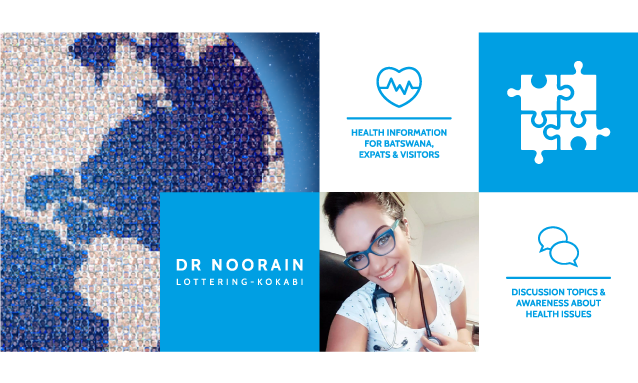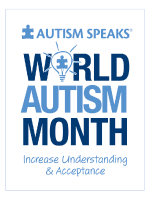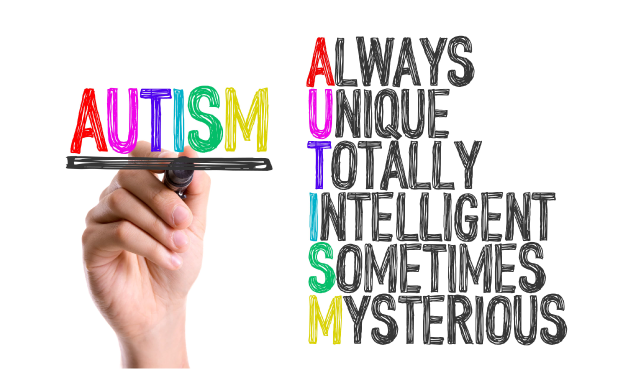
 April is Autism Awareness month and it truly is imperative to bring understanding to this complex disorder that has so many different faces. Different being the operative word because different means unique and unique means beautiful.
April is Autism Awareness month and it truly is imperative to bring understanding to this complex disorder that has so many different faces. Different being the operative word because different means unique and unique means beautiful.
Despite the fact that here in Botswana we are fortunate enough to have an Autism association that aims to educate and assist autistic children and their families, awareness still needs to be spread using as many avenues as possible as there is still so much stigma associated with autism.
There have been many reports of people who get annoyed by children who seem to “just lack discipline screaming their heads off” or by parents who are “letting their kids run wild” but in essence, these kids could actually be on the “spectrum”.
But what does it mean to be on the spectrum?
Autism or Autism Spectrum Disorder (ASD) refers to a complex brain developmental disability that affects a child’s social interaction skills, communication skills and overall cognitive (thinking) function. It is referred to as a “spectrum” because it is defined by a “set” of behaviours that affect each child differently and to varying degrees. So there is no child on the spectrum that is identical to another child.
It is usually diagnosed before 3 years of age and tends to affect boys 4 times more than girls. The most recent statistics from the World Health Organization (WHO) show that every 1 in 160 children is found to be on the spectrum. Race or geographic area have not been shown to affect the incidence of autism at all.

And now to answer the question that everyone asks when hearing about Autism; “what are the causes?”
Well, there is not one exclusive cause but a myriad of factors that can increase the risk of a child developing ASD.
- Genetic – autism tends to run in families or may be due to a mutation in the genetic makeup
- Advanced parental age (either mother or father)
- Pregnancy Complications
- Prematurity
- Low birth weight
- Multiple pregnancies (twins or triplets, etc.)
- Pregnancies spread less than a year apart
- Infections
- Exposure to toxins, chemicals or poisons
Dispelling the myth – Please, please remember, vaccines do not cause autism!
While there is no cure for autism, it is still very treatable. Early diagnosis and intervention show considerably improved outcomes for both the child and family.
Some of the most common signs to help you to take action early
- Delayed talking or limited speech (relying on others to speak for them)
- Repetitive mannerisms or repeating particular words (e.g., head banging)
- Little or no eye contact made when talking
- Lack of interest in friendships or anxiety in meeting people
- Lack of imagination or make-believe playing
- Persistent fixation on parts of objects or specific objects
- Hyperactivity
- Unusual sensitivity to sensory stimulation (e.g. loud noises, bright lights, etc.)
- Difficulty controlling emotions especially frustration
- Tends to be shy or passive
If you identify these signs in your child please speak to your family doctor about ASD so that your child can get the help that they need. This way, you can also be supported and taught coping strategies, which helps to break fears associated with being stigmatised.
With that said, remember that children with ASD are not awful or brats, they are just different and they see the world a little differently than we do and what makes us different is what makes us beautiful. Help us in spreading autism awareness and reminding people near and far,
“In a world where we can be anything let us be kind”, especially to those who need it that much more.
By YourBotswana writer:
Dr. Noorain Lottering-Kokabi, BMSc, MBBS (UWI MONA)
Born in May 1989, Dr Noorain hails from Gaborone Botswana. She completed her Pre-Med at the University of Botswana and went on to attain her BMSc and MBBS degrees at The University of The West Indies in Kingston Jamaica.
Having practised medicine in both the Caribbean and Botswana, she has been exposed to an array of conditions and ailments that have in turn widened her scope of expertise. She is also involved in multiple philanthropic projects that aim to equip youths with relevant life skills and tools they need throughout their lives.
A young, diligent, enthusiastic professional with a formidable hunger to continuously seek further knowledge, both in alternative and modern medicine, Dr. Noorain aims to better the healthcare in the communities she serves.
She currently works in community health providing first line care for the community as a whole. Her current position has enabled her to manage both common and complex cases. These cases range from the common cold/flu, bites to mental health, uncontrolled diabetes, hypertension, tuberculosis and HIV (along with the associated complications). Having worked in the Caribbean, Dr. Noorain is very familiar with the treatment of tropical diseases and severe symptoms that may arise from such diseases.
Dr. Noorain provides quality outpatient care ensuring that her patients are fully educated on their respective illness. After all a patient that is well educated on their illness is more likely to comply with medical protocols and prevention strategies, hence reducing potential mortality and morbidity statistics, which reflects a healthy and happier Botswana.
Dr Noorain is a young, career driven, passionate, culturally and medically diverse professional. She is excited about her collaboration with YourBotswana, hoping to use the platform to educate citizens and visitors alike on current health issues in Botswana.




My grandson is 7yrs but he is so slow to write n read at school. Even to write his last name. Please help me
Hi,
I’m currently in the UK working with ASD (Autistic) children ages 8 to 18years old, as a support worker and teaching assistant. This is in a boarding school for Autistic children in South West England.
Are there any employment opportunities you’re aware of in this specific area?
Hey, my son has 5 of those signs he is 12 years now should I be worried. He started talking at the age of 5, like on the list of the common signs the first 3, hyperactive and the second sign from the bottom and it is bad because he is now becoming a young adult we quarrel so much and most of the times i feel like he is misbehaving.
Hello Mathunye, thank you for your comment. I have passed your comment to Dr Noorain and she will email her response to you.